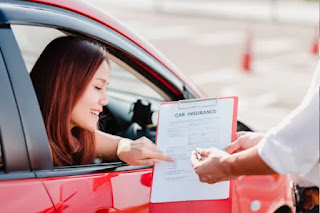Introduction
We understand the importance of clarity and transparency when it comes to auto insurance coverage. We believe that informed consumers make the best decisions, which is why we aim to provide comprehensive information on what auto insurance typically covers.
 |
| Understanding what auto insurance typically covers. |
Bodily Injury Liability
One of the fundamental aspects of auto insurance coverage is bodily injury liability. This coverage helps protect you if you're at fault in an accident that results in injuries to others. It can help cover medical expenses, legal fees, and other related costs.
Property Damage Liability
Property damage liability is another essential component of auto insurance. This coverage comes into play if you cause damage to someone else's property with your vehicle. It can help cover the costs of repairs or replacements for damaged property.
 |
| Exploring the coverage provided by auto insurance policies. |
Collision Coverage
Collision coverage is designed to help pay for repairs to your vehicle if you're involved in a collision with another vehicle or object, regardless of fault. This coverage can be especially valuable in situations where the cost of repairs is significant.
Comprehensive Coverage
Comprehensive coverage goes beyond collisions and covers damage to your vehicle from non-collision incidents such as theft, vandalism, fire, or natural disasters. Having comprehensive coverage can provide peace of mind knowing that your vehicle is protected from a wide range of risks.
Medical Payments Coverage
Medical payments coverage, also known as MedPay, helps cover medical expenses for you and your passengers if you're injured in an accident, regardless of who is at fault. This coverage can be crucial in ensuring that you receive the medical care you need without worrying about high out-of-pocket costs.
Uninsured/Underinsured Motorist Coverage
Uninsured/underinsured motorist coverage is designed to protect you if you're involved in an accident with a driver who either doesn't have insurance or doesn't have enough coverage to fully compensate you for your losses. This coverage can help cover medical expenses, lost wages, and other damages.
 |
| Key aspects of coverage under typical auto insurance plans. |
Rental Reimbursement
Rental reimbursement coverage can be a lifesaver if your vehicle is being repaired after an accident. This coverage helps reimburse you for the cost of renting a replacement vehicle, allowing you to stay mobile while your car is in the shop.
Roadside Assistance
Roadside assistance coverage provides peace of mind knowing that help is just a phone call away if you experience a breakdown or other roadside emergency. Services may include towing, fuel delivery, battery jumps, and more, depending on your policy.
Customizable Options
In addition to these standard coverages, many auto insurance policies offer customizable options to tailor coverage to your specific needs. These options may include coverage for additional drivers, higher liability limits, gap insurance, and more.
 |
| Knowing the extent of protection offered by auto insurance. |
Conclusion
Understanding what auto insurance typically covers is essential for making informed decisions about your coverage needs. At [Your Insurance Agency], we're committed to providing clear, detailed information to help you protect yourself and your vehicle on the road.
FAQs
1. Does auto insurance cover my medical expenses if I'm injured in an accident?
Yes, auto insurance typically includes medical payments coverage, also known as MedPay, which helps cover medical expenses for you and your passengers if you're injured in an accident, regardless of who is at fault.
2. Will auto insurance pay for repairs to my vehicle if it's damaged in a collision?
Yes, collision coverage is designed to help pay for repairs to your vehicle if you're involved in a collision with another vehicle or object, regardless of fault. This coverage can be especially valuable in situations where the cost of repairs is significant.
3. What if my car is stolen or damaged by a non-collision incident?
Comprehensive coverage goes beyond collisions and covers damage to your vehicle from non-collision incidents such as theft, vandalism, fire, or natural disasters. This coverage can provide peace of mind knowing that your vehicle is protected from a wide range of risks.
4. Does auto insurance cover rental cars if my vehicle is being repaired?
Yes, many auto insurance policies offer rental reimbursement coverage, which helps reimburse you for the cost of renting a replacement vehicle while your car is in the shop for repairs after an accident.
5. Is uninsured/underinsured motorist coverage important?
Uninsured/underinsured motorist coverage is crucial because it protects you if you're involved in an accident with a driver who either doesn't have insurance or doesn't have enough coverage to fully compensate you for your losses. This coverage can help cover medical expenses, lost wages, and other damages.

0 Comments